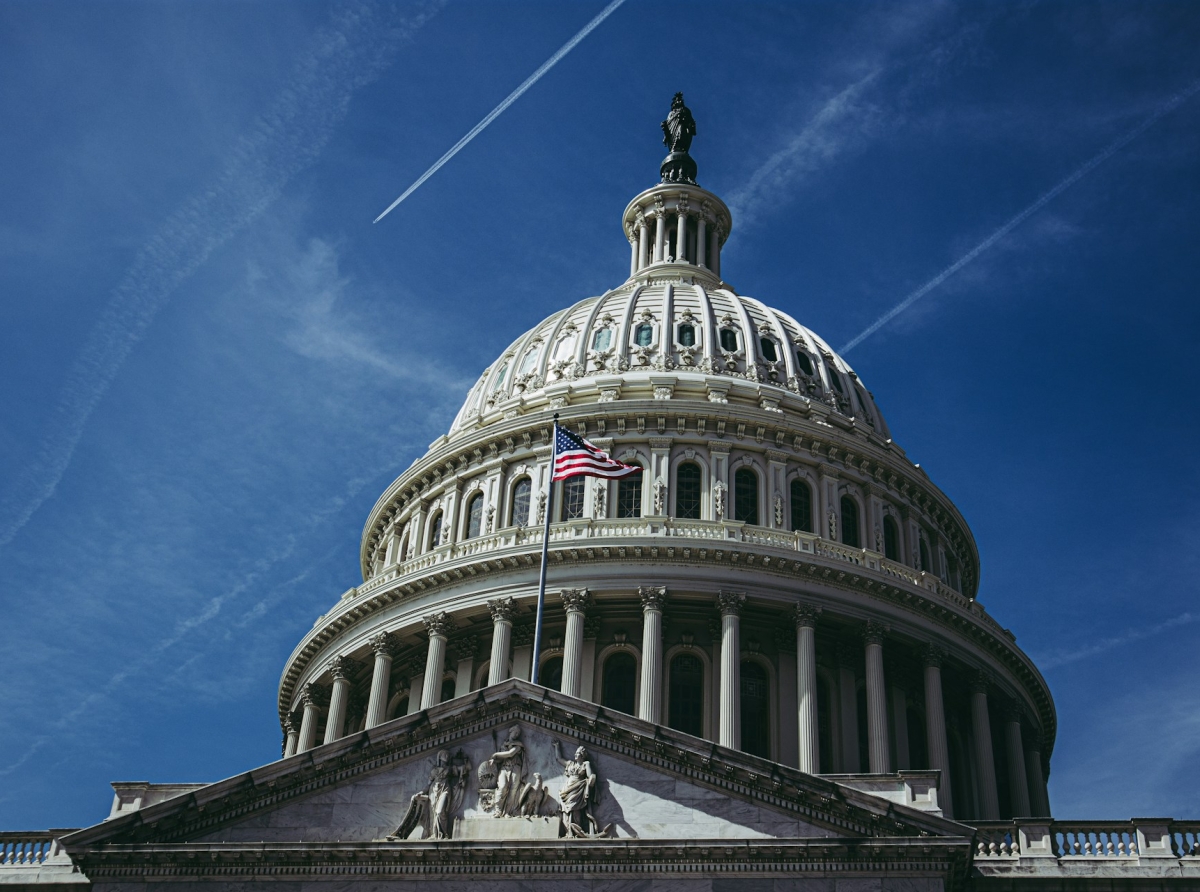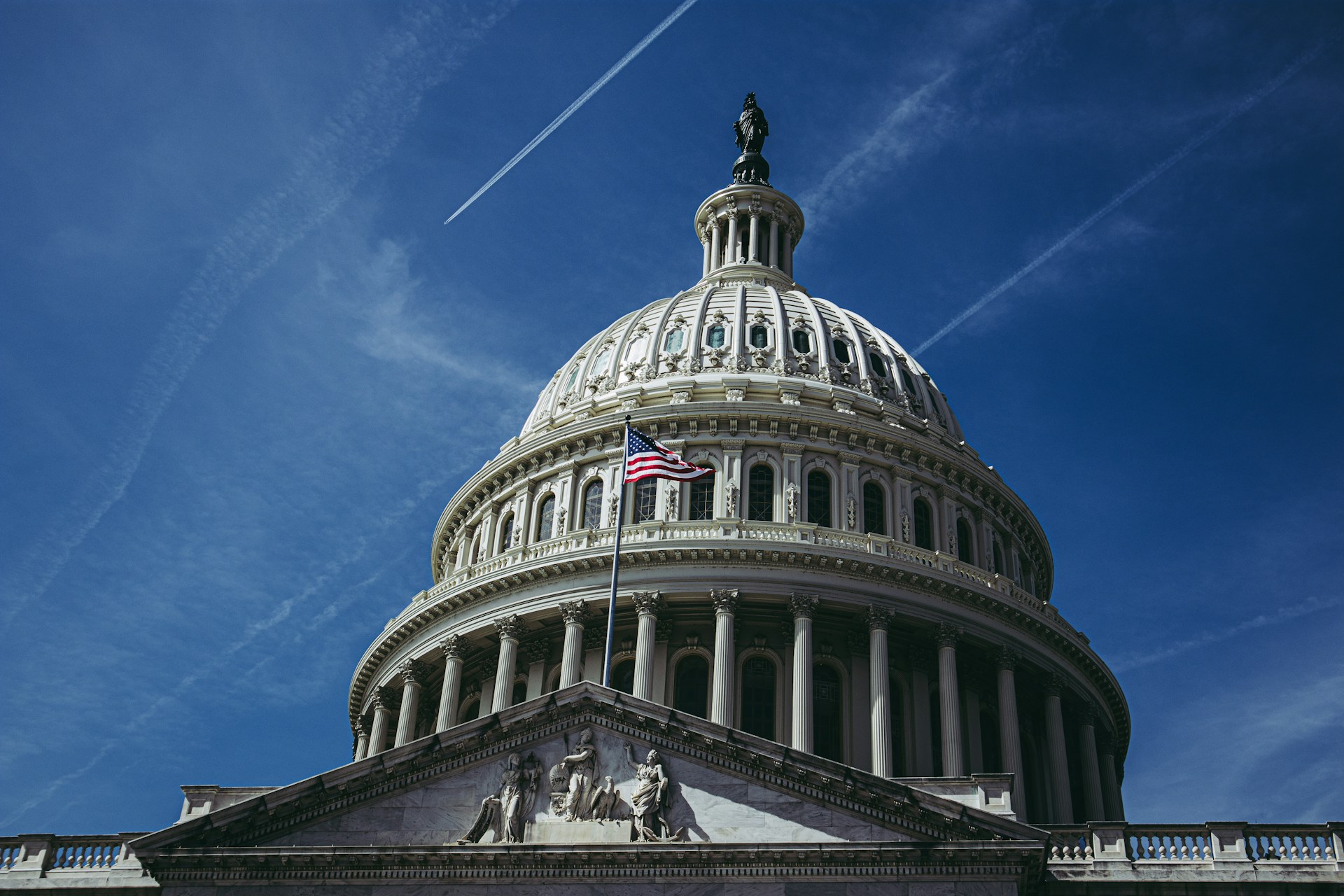Senate Passes GENIUS Act: A Landmark Step for Stablecoin Regulation

Senate Passes GENIUS Act: A Landmark Step for Stablecoin Regulation
In a historic move, the U.S. Senate has passed the GENIUS Act—a landmark bill establishing the first federal regulatory framework for dollar-backed stablecoins.
Short for "Guidance and National Innovation Implementation for Stablecoins in the United States," the legislation sets clear rules for the burgeoning industry while empowering private companies to issue digital currencies under federal oversight.
Short for "Guidance and National Innovation Implementation for Stablecoins in the United States," the legislation sets clear rules for the burgeoning industry while empowering private companies to issue digital currencies under federal oversight.

Senate Passes GENIUS Act: A Landmark Step for Stablecoin Regulation
The act grants the Treasury Department broad authority to regulate stablecoins, ensuring they are fully backed by reserves, subject to monthly audits, and compliant with anti-money laundering (AML) standards.
It also opens doors for banks, fintech companies, and even major retailers to launch their own stablecoins or integrate them into existing payment systems.
It also opens doors for banks, fintech companies, and even major retailers to launch their own stablecoins or integrate them into existing payment systems.
Why the GENIUS Act Matters
Stablecoins, a type of cryptocurrency pegged to real-world assets like the U.S. dollar, have emerged as a critical component of the global financial system.Offering instant settlement and lower transaction fees, they challenge traditional payment rails dominated by networks like Mastercard and Visa.
Last year, stablecoin transaction volumes reached $28 trillion—surpassing the combined totals of both legacy payment giants.
The GENIUS Act aims to balance innovation with consumer protection. By mandating full reserve backing and regular audits, it seeks to prevent collapses akin to TerraUSD's crash in 2022.
Additionally, the law prohibits large non-financial tech companies from directly issuing stablecoins unless they partner with regulated entities.
Industry Giants Embrace Stablecoins
Companies across sectors are already positioning themselves to capitalize on this shift.Shopify has implemented USDC-based payments through Coinbase and Stripe, while Bank of America is reportedly considering entering the stablecoin space. Meanwhile, JPMorgan Chase has launched JPMD, a deposit token designed to function similarly to stablecoins but deeply embedded within traditional banking infrastructure.
Even Deutsche Bank has acknowledged the transformative potential of stablecoins, highlighting their ability to disrupt outdated payment systems.
However, critics warn that unregulated adoption could lead to unintended consequences, particularly if safeguards aren’t strictly enforced.
Political Controversy Surrounding the Bill
Despite its innovative scope, the GENIUS Act faced sharp criticism during debates. Senator Jeff Merkley accused Republicans of enabling “cryptocurrency corruption” by allowing President Trump to profit personally from digital asset ventures.Although Democrats introduced amendments aimed at banning elected officials and their families from participating in crypto projects, these measures were ultimately excluded from the final version.
President Trump’s financial disclosures reveal he earned $57 million in 2024 alone from token sales tied to World Liberty Financial, a platform closely aligned with his political brand.
His family’s crypto empire now includes controversial meme coins like $TRUMP, a $2.5 billion Bitcoin treasury, proposed ETFs for Bitcoin and Ethereum, and American Bitcoin, a mining operation focused on domestic production.
Forbes estimates Trump’s crypto-related holdings at nearly $1 billion, significantly boosting his net worth to $5.6 billion. This aggressive push into digital finance underscores the growing intersection between politics and blockchain technology.
Looking Ahead
As the GENIUS Act takes effect, it signals a seismic shift in how digital currencies are governed and utilized.For consumers, businesses, and regulators alike, this legislation represents both an opportunity and a challenge.
Will it foster responsible innovation while maintaining the dominance of the U.S. dollar? Or will lingering concerns about conflicts of interest undermine public trust?
Only time will tell, but one thing is certain: the era of stablecoins has arrived—and it’s here to stay.














Report
My comments